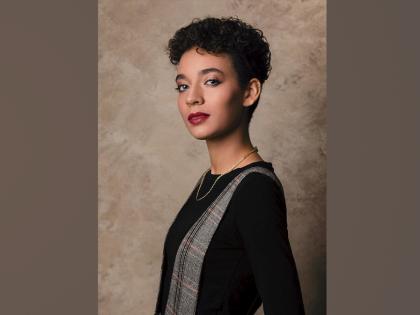In 60 nations around the world, Muslims constitute a majority of the population--but there is no single role for Islam in Muslim politics, panelists made clear at a Kennedy School forum held on October 16. Cosponsored by the Harvard Islamic Society and the Institute of Politics Student Advisory Committee, the forum offered perspectives from independent scholar Karen Armstrong, author of a history of Islam and a book on fundamentalism in Judaism, Christianity, and Islam; Ali Asani, professor of the practice of Indo-Muslim language and culture; William Graham, Albertson professor of Middle Eastern studies and professor of the history of religion; and Roy Mottahedeh, Gurney professor of history and chair of the Faculty of Arts and Sciences' committee on Islamic studies.
Using a familiar image from American politics, Asani likened Islam to a rainbow containing "tremendous diversity." He cited the neighboring countries of Turkey (a republic where the powerful military is "fundamentalist in their secularism"), Iran (which has secular and religious leaders, although the chief ruler is a religious leader or council), and Pakistan ("the first nation state created in the name of religion," now run by the military) in pointing out that religion is only one element affecting Muslim societies.
Graham questioned the very phrase "Muslim politics." State governments in the Islamic world have been seeking to coopt the religious leadership since the days of the caliphate, he said, but all have been frustrated by Islam's lack of a religious hierarchy. ("Islam is very Protestant about this," Mottahedeh quipped later, emphasizing his colleague's point.) Generally the 'ulama,' the learned doctors of Muslim religion and law, considered governments dangerous and kept them at arm's length. "Religious authority is diffuse," and individuals are morally responsible for their own actions. With so many autocrats at the helm of officially Islamic states, Graham noted, religious reform movements have been the main way for opposition elements to struggle for socioeconomic and political change.
Islamic political thought is not "univocal," Mottahedeh added. Iranians, for example, "continue to have clean elections and believe the people should have a voice" in government, unlike the situations in Afghanistan or Sudan. He reported ongoing reassessments of the Koran and shari'ah (religious law) in the Islamic world, and suggested this developing liberal Islamic tradition was the wave of the future. The core of the Koran is pluralist, Asani said flatly, but over time many commentaries on it became exclusivist, often in an attempt to establish political hegemony. The conservative Wahhabism of Saudi Arabia doesn't represent the true teachings of Islam in the eyes of many Muslims, he reported, but the Saudis have used their oil wealth to promote their beliefs around the world, often at the expense of local Muslim cultures: in Bosnia, mosques rebuilt with Saudi aid had to conform to Arab rather than indigenous design.
Armstrong (who noted that it took the West centuries to develop democratic institutions) focused in particular on the intersection of fundamentalism and politics. Not all fundamentalism is extremist or violent, she said, but all the movements she has studied spring from a fear that modern secularism aims to wipe out religion; she described a "post-fundamentalism" that is becoming ever more extreme, particularly in response to repression, and can be neither safely ignored nor safely exploited by existing regimes. Pointing out that relations between fundamentalism and democracy aren't very good anywhere--witness beliefs held by some Christian fundamentalists in this country--she added that Western governments' support for autocratic regimes can make democracy seem a bad joke. Iranian ayatollahs, she said, couldn't understand how Jimmy Carter--a religious man and proponent of human rights--could support the shah and attack them.
That prompted Graham to shift the focus, as the forum ended, from Muslim to U.S. politics. With the Cold War over, he suggested, we should be able to "put our money where our mouths are" and help Muslim groups seeking reforms and a civil society in their own countries. The opportunity is there, he challenged, but doing the job will require a lot of fresh thinking.
~Jean Martin
The October 16 forum is accessible via www.iop.harvard.edu/forum-archives.html. Alumni can also view a November 4 Alumni College on the same topic, with many of the same faculty speakers, via Harvard at Home, accessed at www.haa.harvard.edu.








